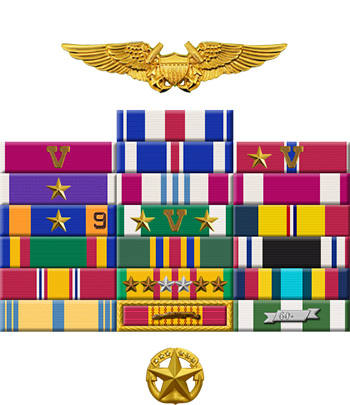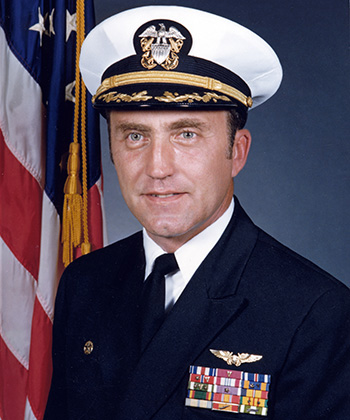
|
Earl G. Lewis, Jr. |
 |
|||
| Rank, Service | ||||
Commander O-5, U.S. Navy |
||||
| Veteran of: | ||||
|
||||
| Tribute: | ||||
Earl Lewis was born in 1940 in Cape Girardeau, Missouri. He entered the Naval Aviation Cadet Program for Naval Flight Officer training on June 22, 1963, and was designated a Naval Flight Officer and commissioned an Ensign in the U.S. Navy on June 12, 1964. After completing Radar Intercept Officer (RIO) school, he attended F-4 Phantom II Replacement Air Group training with VF-121 at NAS Miramar, California, from January to June 1966, followed by service as an F-4 RIO with VF-151 at NAS Miramar and deployed in combat operations in Southeast Asia aboard the aircraft carrier USS Constellation (CVA-64) from July to November 1966, and aboard the aircraft carrier USS Coral Sea (CVA-43) from August 1967 until he was forced to eject over North Vietnam and was taken as a Prisoner of War on October 24, 1967. After spending 1,969 days in captivity, LCDR Lewis was released during Operation Homecoming on March 14, 1973. He was briefly hospitalized to recover from his injuries at the Naval Hospital in San Diego, California, and then attended F-4 Replacement Air Group training with VF-121 at NAS Miramar from September 1973 to July 1974, followed by service on the staff of the Commander, Eleventh Naval District at NOB Terminal Island, California, from July 1974 to August 1976. CDR Lewis again attended F-4 Replacement Air Group training with VF-121 at NAS Miramar from December 1976 to July 1977, and then served with VF-154 at NAS Lemoore, California, from July 1977 to January 1979. His next assignment was as a staff officer on the Joint Staff in the Office of the Joint Chiefs of Staff in the Pentagon from January 1979 to November 1981, followed by service as Deputy Commander of Fleet Electronic Warfare Support Group at San Diego from November 1981 until his retirement from the Navy on July 1, 1985. |
||||
|
||||

